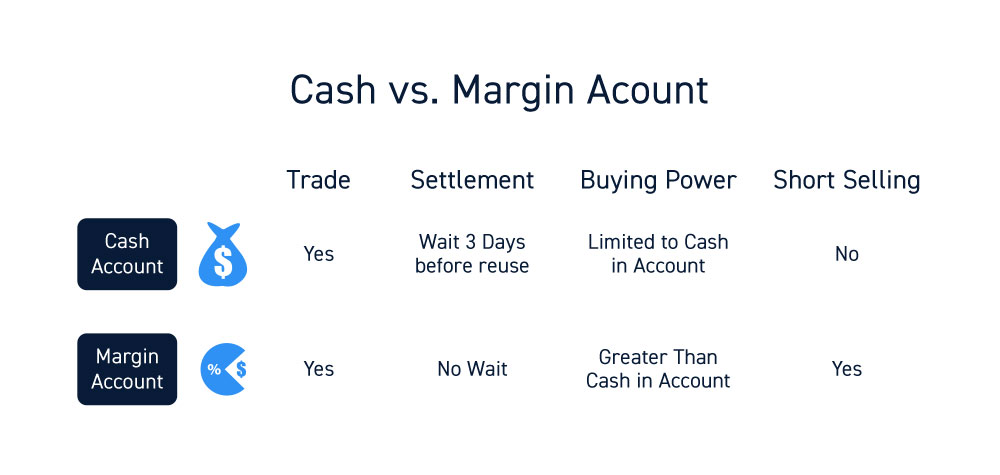Introduction:

Image: centerpointsecurities.com
The financial world offers a vast array of investment opportunities, each with its own unique characteristics and risks. Among the most popular are options trading and cash accounts. Understanding the differences between these two can help investors make informed decisions and maximize their potential returns.
Options trading involves the buying and selling of contracts that give the holder the right, but not the obligation, to buy or sell an underlying asset at a specified price on a specified date. Cash accounts, on the other hand, are traditional brokerage accounts where investors can buy and sell stocks, bonds, and other financial instruments with the intention of holding them for varying periods.
Understanding Options Trading:
Options contracts are traded on exchanges and provide investors with a range of opportunities, including hedging against risk, speculating on price movements, and generating income through premium collection. There are two main types of options: calls and puts. Calls give the holder the right to buy the underlying asset, while puts give the holder the right to sell the underlying asset.
Key concepts in options trading include strike price, expiration date, and premium. The strike price is the price at which the holder can buy or sell the underlying asset, and the expiration date is the date on which the contract expires. The premium is the price paid to acquire the option contract.
Advantages and Disadvantages of Options Trading:
Options trading offers several potential advantages, including:
- Leverage: Options can provide investors with leverage, allowing them to control a large position with a relatively small investment.
- Income generation: Selling options can generate income through premium collection, even if the underlying asset doesn’t move in the desired direction.
- Hedging: Options can be used to hedge against risk by protecting existing positions or reducing the potential impact of market fluctuations.
However, there are also some disadvantages to options trading:
- Complexity: Options trading can be complex and requires a thorough understanding of the concepts and risks involved.
- Risk: Options trading involves inherent risk, and investors can potentially lose their entire investment.
- Time decay: The value of options contracts declines as they approach their expiration date, regardless of the underlying asset’s price movement.
Understanding Cash Accounts:
Cash accounts are simpler in concept compared to options trading. Investors can buy and sell stocks, bonds, and other financial instruments using funds available in their account. These accounts are typically used for long-term investments or short-term trading.
Advantages and Disadvantages of Cash Accounts:
Cash accounts offer several advantages, such as:
- Simplicity: Cash accounts are straightforward and easy to use, even for beginner investors.
- Ownership: Investors have full ownership of the securities they purchase in a cash account.
- Liquidity: Stocks and bonds traded in cash accounts are highly liquid, allowing investors to buy or sell quickly.
Cash accounts also have some disadvantages:
- No leverage: Cash accounts do not provide any leverage, meaning investors must fully fund their positions.
- Missed opportunities: Cash accounts limit investors’ ability to speculate on price movements or generate income through premium collection.
- Account fees: Some cash accounts may charge maintenance or trading fees.
Choosing Between Options Trading and a Cash Account:
The decision between options trading and a cash account depends on an investor’s individual goals, risk tolerance, and knowledge. Options trading is suitable for experienced investors who understand the risks involved and seek opportunities for leverage, hedging, and income generation. Cash accounts, on the other hand, are a simpler and more straightforward option for beginner investors or those seeking to own physical assets.
Conclusion:
Options trading and cash accounts offer distinct investment opportunities. Options trading provides flexibility, leverage, and income-generating strategies, but comes with higher risks and complexity. Cash accounts are simpler and more suitable for long-term investments or short-term trading, but limit opportunities for speculation and leverage. By thoroughly understanding the advantages and disadvantages of each type of account, investors can make informed decisions that align with their financial objectives.

Image: www.oracleappstoday.com
Options Trading Or Cash Account

Image: www.sharesight.com






